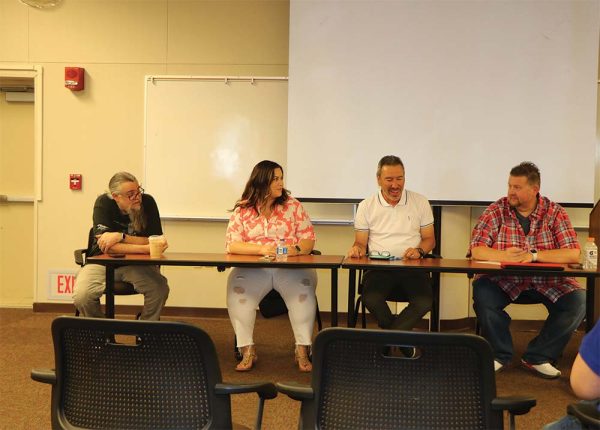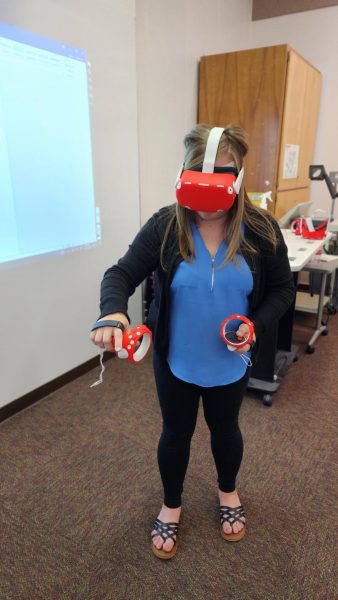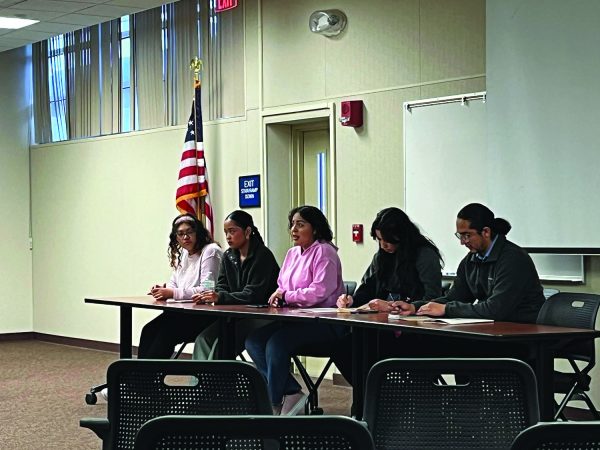BC hosts a webinar discussing the importance of Ethnic Studies in schools
March 30, 2021
Bakersfield College held, Teaching Chican@/Latinx: An Intercollegiate, Interdisciplinary Panel on Higher Education, Pedagogy, and the Importance of Ethnic Studies webinar on March 24.
The event was a part of the Jess Nieto Memorial conference being held by BC. The panel was moderated by a BC faculty member in sociology, Nicole Carrasco, and Isai Aguilar, a former BC student.
The panelists of the evening were Javier Llamas, a faculty member at BC in the history department; Lisette Lasater, who is a professor of English at Palomar College and coordinator of the Puente Program; Octavio Barajas, who is a professor of ethnic studies at the College of Sequoias, DR. Thomas Carrasco chairman of ethnic studies at Santa Barbara City College, and Elias Serna who was an assistant professor at the University of Redlands.
Carrasco and Aguilar took turns asking the panelists a series of questions regarding the importance of having ethnic studies courses on campuses.
The first question asked was what the benefits of school are having or adding ethnic studies programs, “The need of ethnic studies gives awareness to the many types of groups,” said Llamas and added that if there was a way to add these ethnic programs could potentially help minimize the violence between various cultural groups.
Barajas added, “For the benefits of school they’re tremendous, and it’s really critical to actually begin to center voices and experiences of people who have been historically marginalized and minoritized.”
“Chicano literature is the bedrock of my pedagogy,” said Lasater when she jumped into the conversation.
For those that do not study ethnic studies, Dr. Carassco provided some advice on how to implement these ideas into the classroom, “Dealing with the demographic shift, know who you are teaching whether they are Asian, African, Chicano, etc. Know the population and the issues in their communities.”
Identity and terminology was the next topic that panelists share their views on, “You choose your own identity; you don’t let anybody tell you what you are,” shared Dr. Carassco and added that history has a big part in one’s identity.
Serna shared that the “X” at the end of the Chicanx and Latinx is a marker that opens the doors to nonbinary thinking and openness to sexuality. He also added that not many Latinx and Chicanos like use “X” at the end of the words.
Barajas joined the conversation and said that it is unfair how unique it is to have spaces where people of color can talk about identity and engage with one another.
Following that conversation, Lasater shared her journey on how her mom did not allow her to use the term Chicano and did not learn more about this term until she took a Chicano studies class.
The next question asked was if the panelists feel responsibility or a burden to be the center of a lot of diversity work on campuses.
“Are you willing to give up your privilege? Do you really want to talk about anti-racism? Put your money where your mouth is, and they don’t,” said Dr. Carassco when talking about white professors on campus.
The webinar came to a close, with the panelists answering questions from attendees.










